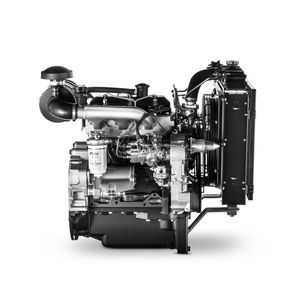How the weight of the vehicle influences fuel savings

The weight of the vehicle is a key factor that directly influences fuel savings. The heavier the weight, the more energy is required for mobilization, which translates into an increase in fuel consumption. Therefore, understanding how weight affects fuel performance is essential for those looking to optimize their mobility costs and contribute to a more sustainable environment.
The weight of the vehicle plays a fundamental role in the amount of fuel it consumes. The heavier a vehicle is, the more energy is required for its mobilization, which in turn increases fuel consumption. This article explores how weight affects vehicle performance and offers practical tips to minimize its impact on fuel savings.
The direct impact of weight on fuel consumption
The relationship between vehicle weight and fuel consumption is very clear. For every hundred extra kilograms loaded onto a car, fuel consumption can increase by approximately 6%. This means that excess weight not only affects vehicle performance but also increases long-term operational costs.
Factors to consider when evaluating vehicle weight
There are multiple factors that influence the weight of a vehicle. The load being carried is one of the most obvious. The greater the load the car carries, the higher the fuel consumption will be. It is essential to properly organize the load within the trunk to avoid unnecessary weight that impacts vehicle performance.
The trunk load and its repercussions
Objects stored in the trunk of the car can significantly contribute to the total weight. By storing only what is necessary and removing unused items, fuel efficiency can be improved. A light trunk can make a difference in fuel consumption, especially on long trips.
Tips for reducing weight and saving fuel
Reducing the weight of the vehicle is an effective strategy for saving fuel. Various practices can be implemented, such as removing unnecessary accessories, keeping the vehicle in good condition, and avoiding overloads. A proactive approach can eliminate excess kilos that would otherwise negatively impact fuel consumption.
Regular maintenance and its importance
Regular maintenance of the vehicle not only ensures its optimal operation but also helps reduce fuel expenses. Well-inflated tires, brakes in good condition, and a clean engine are aspects that help keep the vehicle’s weight in efficient standards. Regular checks can prevent elements from consuming more gasoline than necessary.
Innovative solutions to optimize consumption
In addition to traditional methods of saving, there are technological innovations designed to improve fuel efficiency. A clear example is software developed by a spin-off from the University of Salerno, which promises to reduce fuel consumption in road vehicles by up to 30%. More information about this solution can be found here.
Conclusion on the influence of weight on consumption
In summary, the weight of the vehicle is crucial for understanding fuel consumption. With a conscious focus on weight reduction and proper maintenance, drivers can improve their vehicles’ efficiency and, consequently, save on fuel. A good practice is to regularly evaluate the contents of the trunk and consider recommendations for long trips, which can be found here.
Influence of vehicle weight on fuel savings
The weight of the vehicle is a crucial factor that significantly affects fuel consumption. As a car becomes heavier, the amount of energy required for its movement also increases. This implies that heavier vehicles require more engine effort, which translates into higher fuel consumption. Consequently, drivers of lighter vehicles tend to enjoy greater efficiency in the use of gasoline or diesel.
In addition, each increase in the weight of the car translates into a proportional increase in fuel consumption. For example, it is estimated that an average car could see an increase of approximately 6% in its consumption for every hundred kilograms of additional weight. This information is relevant not only for private cars but also for commercial fleets where efficient fuel management is essential to reduce operational costs.
The distribution of the load also plays a vital role. When a vehicle carries a heavy load, the way this load is positioned can affect stability and, ultimately, fuel performance. Therefore, optimizing the loading space so that weight is distributed evenly can help mitigate some of the negative effects of weight on fuel consumption.
Finally, in order to maximize fuel savings, it is essential to review not only the total weight of the vehicle but also consider other factors that may influence, such as the condition of the tires and the general maintenance of the vehicle. In summary, paying attention to the weight of the vehicle and its load can mean a significant difference in fuel savings in the long run.





